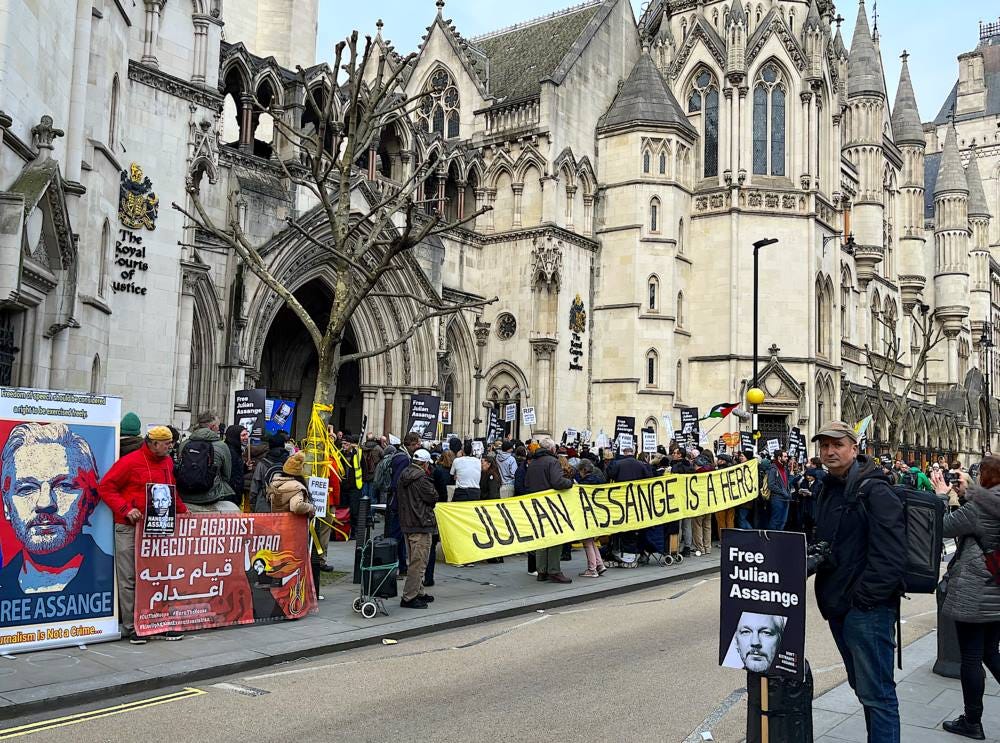"[Julian Assange's] prosecution was motivated to punish and inhibit the exposure of American state-level crimes."
Justices Johnson and Sharp seemed at times surprised by what they were hearing from Assange’s lawyers.
I would diminish the importance of the persecution of Julian Assange by writing about it when there are others better suited for the purpose.
Consortium News has a superb collective of articles, of which editor Joe Lauria’s is the best I’ve read, truly exceptional, informative and passionate, so I beg you to think of Julian and read it in full!
Day One: Assange Timeline Exposes US Motives
“On Day One of Julian Assange’s attempt to appeal Britain’s order to extradite him to the United States, his lawyers laid out a timeline that exposed U.S. motives to destroy the journalist who revealed their high-level state crimes…
Assange lawyer Mark Summers made a forceful argument that the United States in essence is treating Assange no differently than any authoritarian regime would deal with a dissident journalist who revealed its secret crimes…
"[Julian Assange's] prosecution was motivated to punish and inhibit the exposure of American state-level crimes."
Justices Johnson and Sharp appeared to be not extremely well-versed in the Assange case and seemed at times surprised by what they were hearing from Assange’s lawyers. But they had been prepared on the U.S. view of Assange allegedly harming U.S. informants.
What they didn’t know is that Assange had actually spent time redacting the names of U.S. informants from the Diplomatic Cables, while WikiLeaks‘ mainstream partners in 2010 did not…
The judges may also have been surprised to learn that under U.S. law and practice, (in this case with agreement from the British government), new charges could be added to Assange’s indictment after he would arrive in America. The Espionage Act, for instance, carries a provision for the death penalty if committed during wartime.
Britain does not have the death penalty and cannot extradite someone who could face capital punishment. Though the U.S. could offer Britain diplomatic assurances that it would not seek the death penalty against Assange, so far it has refused. Fitzgerald also seemed to shock the courtroom by speaking of instances in U.S. courts where someone convicted for one crime could at sentencing receive time for another offense he or she was never tried for…”
Read the full article and look out for the sequel.



The point of public execution is to inhibit further cimes from the public. Sadly telling the truth is equivalent to treason, and must be stopped at all cost.
We can't have people seeding thoughts of freedom, or rebellion.
It would make the leader's far to uncomfortable